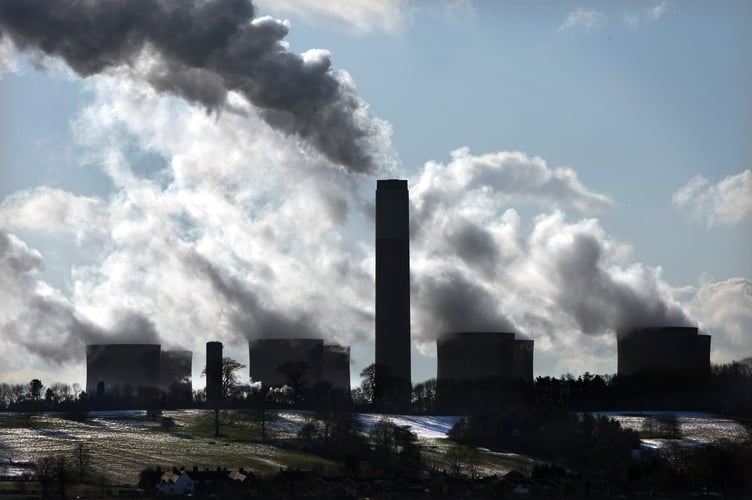Fewer greenhouse gas emissions were released into the atmosphere in Powys in 2022, new figures show.
It comes as environmental activists warned "incremental change is not enough to protect people and planet for generations to come", calling on the new Government to take "ambitious" action to combat climate change, and reach net zero emissions.
New figures from the Department for Energy Security and Net Zero show 375,929 kilotonnes of carbon dioxide equivalent (kt CO2e) were emitted across the UK in 2022.
This was the equivalent of 5.6 tonnes CO2e (t CO2e) per capita – a fall from 5.9 the year before and 6.2 in 2019, before the coronavirus pandemic.
In Powys there were 1,615.8 kt CO2e emitted, or 12.1 tonnes per person – down from 12.6 tonnes in 2021.
Andrew Pendleton, deputy CEO of the environmental charity Global Action Plan, said: "Any decrease in greenhouse gas emissions is encouraging, but incremental change is not enough to protect people and planet for generations to come.
"We need the newly-elected government to take ambitious action to tackle climate change and air pollution by ensuring everyone can travel and heat their homes in ways that are better for our health and the planet, including increasing funding for local authorities to continue to decarbonise our towns and cities."
The data was released before the recent general election, which saw Labour win an overwhelming majority, and former leader Ed Miliband return to government as Energy Security and Net Zero Secretary.
On Monday, Mr Miliband ditched a ban on new onshore wind farms introduced by the Conservatives in 2015, which the Government hopes will boost economic growth and help to transform the grid to clean energy by 2030.
Alethea Warrington, senior campaigner at climate charity Possible, described the announcement as a "really positive step forward for our climate, our economy, and our energy bills".
"This is a sensible, practical move which reflects the UK public’s strong support for onshore wind, which goes across political parties and every constituency", she added.
Nationally, transport was the biggest cause of emissions at 30%. That was followed by domestic use at 22%, and industry at 17%.
In Powys the agriculture sector accounted for the biggest source of emissions, with 73% of all greenhouse gases.
Councillor Claire Holland, environment spokesperson for the Local Government Association, said councils can directly help reduce local emissions, but need support from central government to do so.
"As local leaders, only councils can lead targeted local climate action in our villages, towns and cities that hit net zero targets for half the costs and generate three times the returns", she said.
"To deliver this we need backing for local climate action to rapidly retrofit social and fuel poor homes, decarbonise transport, protect and grow biodiversity, and powers to roll out renewable energy schemes."




